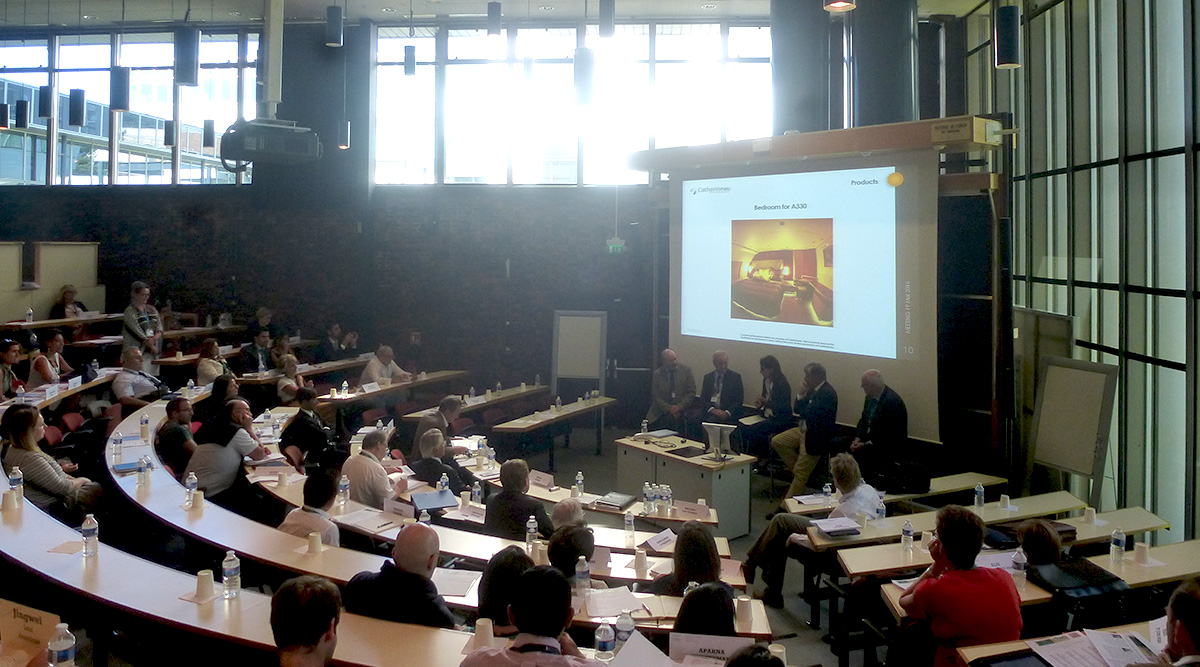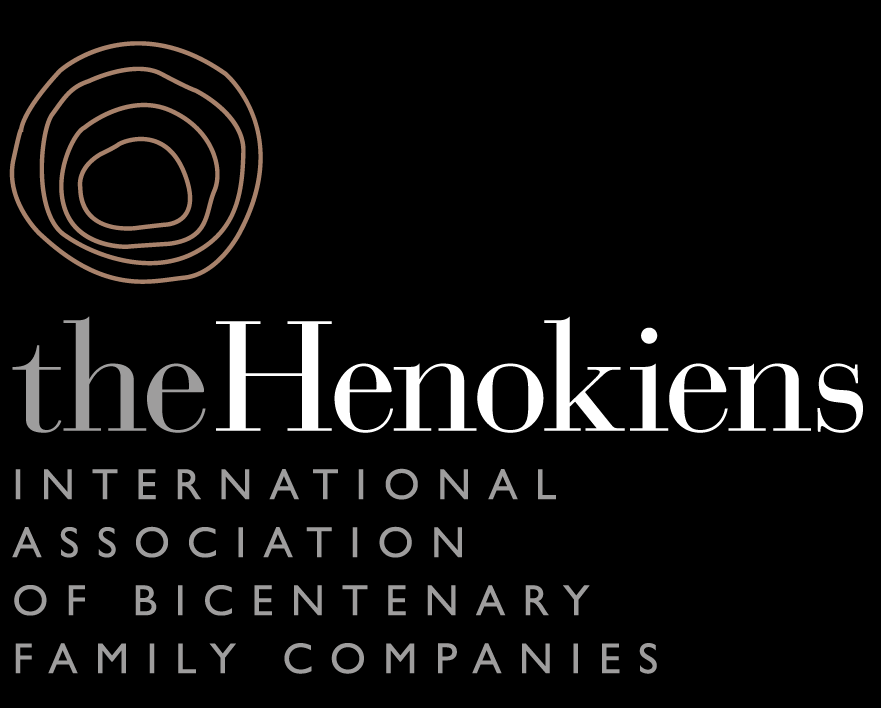Case Studies and Reports

One of the new flagship projects of our Association is to mobilize young Henokiens to take part in a project to organize the writing of case studies on their own family firms by professionals. Cases that can be offered to the academia by helping teachers to provide answers to questions that students and young managers have about family businesses.
This project called "Compendium" is the compilation of knowledge and experience accumulated during centuries by the Henokiens enterprises, and that they now wish to share with next generations, in order to help them taking up specific challenges associated with family businesses.
This Compendium is composed of "academic cases", written by professors from eminent universities and business schools (INSEAD, Bocconi, IMD, Harvard, Grenoble Ecole de Management, ICN Business school, Pepperdine University, Palermo University, Witten University …) and based on interviews with members of the Henokiens. They may focus on themes such as: how to manage transition and succession? How can we adapt to changing markets without losing our identity? What is the critical size for our family business?
These academic cases can be offered to universities and business schools interested in family enterprise and could be of particular interest to students enrolled in various programs (MBA, research, Family Business Enterprise…) and young leaders in family firms.
You can have access to the interviews given by Henokiens members who participated in the INSEAD-Family Enterprise Day, to the reports of September 2015 and 2016 INSEAD-Family Enterprise Day and to the Henokiens case studies presented at INSEAD to a group of Henokiens members, INSEAD MBA students and alumni and members of family owning businesses
Cases Studies executed to date* :
| Toraya | Written by Tetsuya Ohara (University of St Andrews School of Management) |
| Van Eeghen Group | Written by Vincent Mangematin (Grenoble Ecole de Management) |
| Viellard Migeon & Cie | Written by Nicolas Battard (ICN Business school) |
| Hoshi | Written by Tetsuya Ohara (University of St Andrews School of Management) |
| Friedrich Schwarze | Written by Andrea Calabrò, (Witten-Herdecke University) |
| Mellerio dits Meller | Written by Valérie Tandeau de Marsac (Professor and family business advisor) |
| Garbellotto | Written by Professor Salvatore Tomaselli (Palermo University) |
| Gekkeikan | Written by Tetsuya Ohara (University of St Andrews School of Management) |
| Catherineau | Written by Gérard Hirigoyen (University Montesquieu Bordeaux 4) |
| Yamasa | Written by Tetsuya Ohara (University of St Andrews School of Management) |
| Revol | Written by Vincent Mangematin (Grenoble Ecole de Management) |
| The Henokiens case (introduction and Conclusion) | Written by INSEAD |
| Banque Hottinguer | Written by Rania Labaki (EDHEC Business School) |
| Amarelli | Written by Salvatore Tomaselli (Palermo Univesity) |
| Pollet | Written by Vincent Molly & Eddy Laveren (Antwerp Management School-Antwerp University) |
| H. Beligné & Fils | Written by Patrice Charlier (EM Strasbourg-Université of Strasbourg) |
| J.D. Neuhaus | Written by Anne K. Heider, Tom A. Rüsen & Marcel Hülsbeck (Witten-Herdecke University) |
| Pictet | Written by Torsten Groth & Fritz B. Simon (Witten Institute for Family Business) |
| D'Ieteren | Written by Ellen Debackere (Odisee University) |
| Beretta | Written by Marta Widz & John Ward (IMD) |
| Yamamotoyama | Written by Tetsuya Ohara (University of St Andrews School of Management) |
| Augustea | Written by Salvatore Tomaselli (Palermo University) |
| A.E. Köchert | Written by Michael Hirt (Hirt & Friends) |
| C.Hoare & Co | Written by Rania Labaki (EDHEC Business School) |
| Okaya | Written by Munehiko Ito (Otemae University) |
| Grondona | Written by Rania Labaki (EDHEC Business School) |
Compendium
The Henokiens Compendium brings together a set of case studies on the companies members of the Henokiens Association. Its objective is to provide to all those who are interested in historical firms, and more generally family businesses, the keys to their longevity and success while revealing some of their secrets, often related to a family culture acquired over time and transmitted to each new generation.
The Compendium is composed of studies carried out by professors, researchers, and experts who have devoted their time and efforts writting this collection of cases that present both a wide range of stories and business issues but also management models that can serve as an example and inspiration to those wishing to join family businesses or to start their own business or to pass on their family business to the next generation.
*By permission of the authors and/or the legal owners
All of the Case Studies contained in the Henokiens "Compendium" have been synthesized by INSEAD in a document entitled: "16,000 Years of Family Business: The Leadership Model of the Hénokiens" that you can discover below:
Introduction to the Hénokiens Compendium (written by Morten Bennedsen and Brian Henry)
Interviews :
http://knowledge.insead.edu/family-business/the-secrets-of-family-business-longevity-3543
Reports :
- INSEAD-Family Enterprise Day, 05 September 2015
- INSEAD-Family Enterprise Day, 24 September 2016 :
- On September 24 September 2016, the first ever academic study conducted on the Henokiens was presented at the Wendel Center for Family Enterprise on the INSEAD Europe campus. This unique research entitled "Henokiens: The Family and Firms Who Made History" brought together testimonies and share experiences of many of the member companies of the Henokiens association. The authors Morten Bennedsen (Rosalie Hoffmann Chaired Professor of Family Enterprise and Academic Director of the Wendel International Center for Family Enterprise) and Brian Henry (INSEAD Research Fellow), have sought to discover and give concrete answers to main drivers of entrepreneurship that are intrinsic to all family-run firms, such as :
- Family Assets : which are the special contributions from family to firms that cannot easily replicated as their unique history and legacy, networks and values ?
- Roadblocks : how generation after generation Henokiens have overcome crisis, tremendous challenges and roadlbocks seemingly insurmountable to continue remaining independent ?
- Succession : what are the different methods and paths chosen by the Henokiens to prepare their succession and organize the transmission within their enterprises ?
- Innovation : How such old companies have managed to maintain their competitiveness knowing that innovation is most of the time THE way to continue the tradition ?
- To order the whole Henokiens case, just click on the following link : https://cases.insead.edu/publishing/case?code=35326
- Rania Labaki, Director EDHEC Family Business Research Center «Historical values, social and environmental responsabilities : The next generation of family businesses is leading the way»

